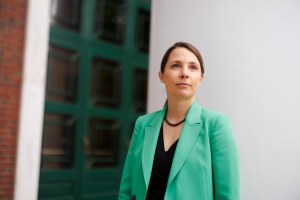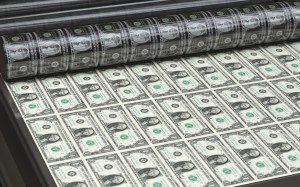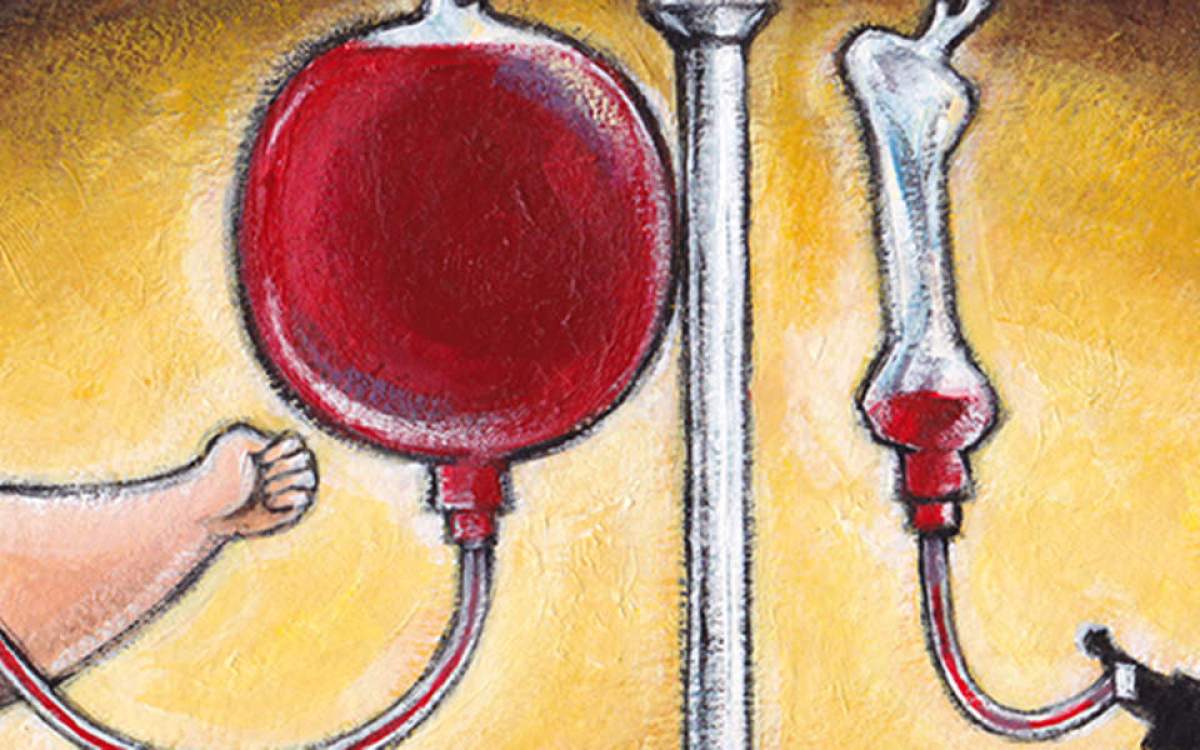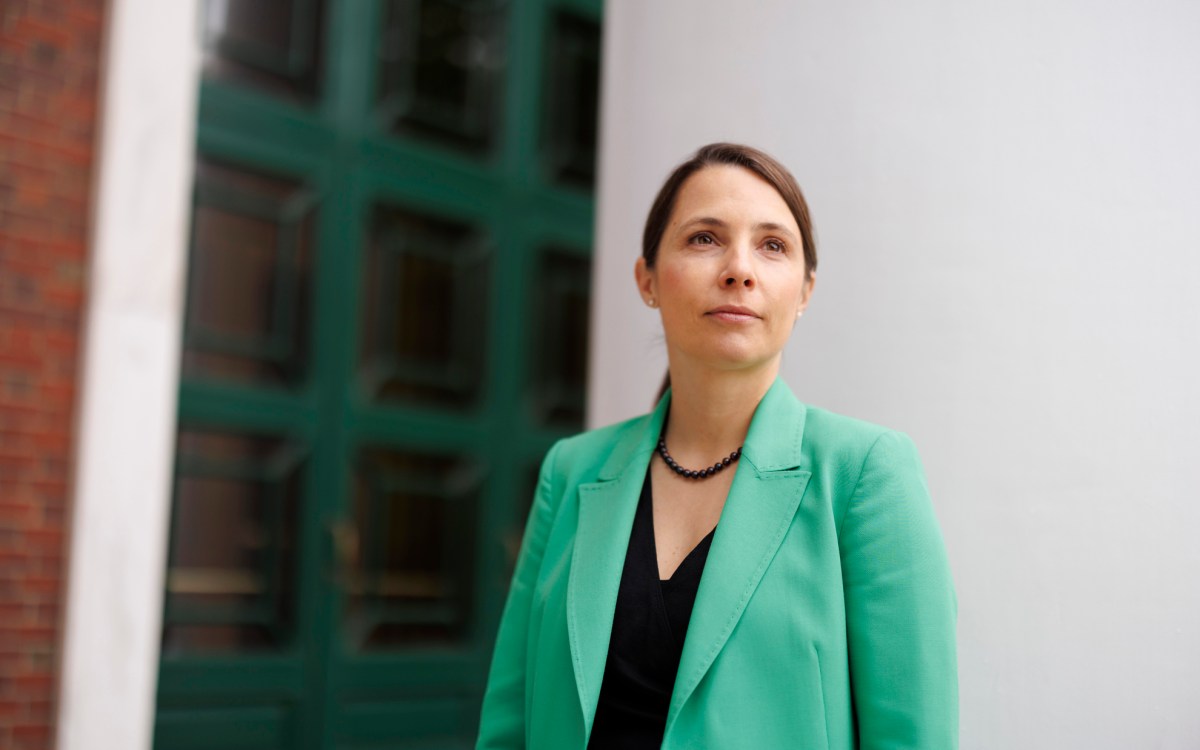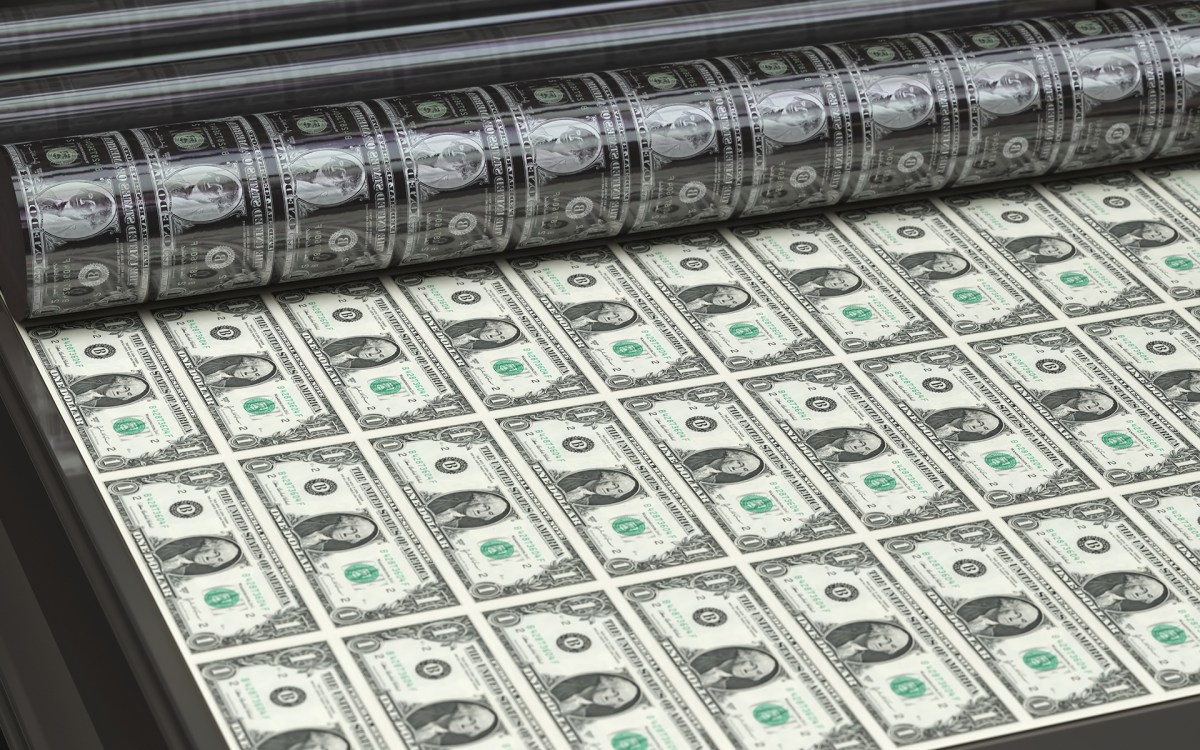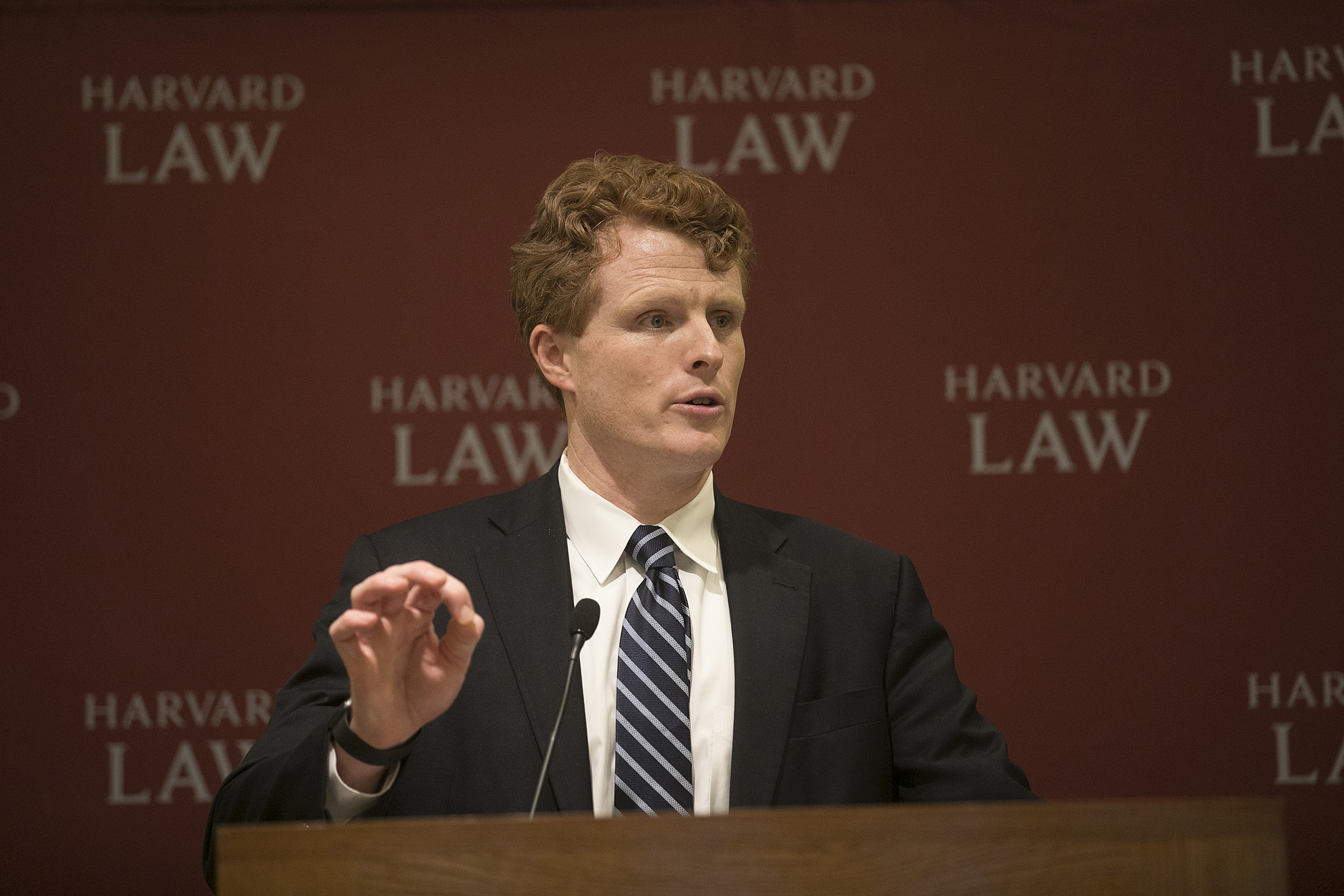
U.S. Rep. Joe Kennedy III brought his crusade for “moral capitalism” to Harvard.
Jon Chase/Harvard Staff Photographer
A call for a kinder capitalism
Rep. Kennedy advocates a new economic agenda that addresses the needs of embattled workers
Speaking at Harvard Law School, U.S. Rep. Joe Kennedy III (D., Mass.) called Monday for a new national economic agenda based on “moral capitalism” that addresses the needs of embattled workers.
In recent months, Kennedy has been pushing for a fresh economic sensibility. Speaking at the John T. Dunlop Forum on the topic of “Building a Moral Capitalism,” he argued that the recent federal government shutdown represented capitalism at its least moral.
“It’s a particular honor to be here after the month we’ve had in Washington,” he told a full house at Wasserstein Hall on the Harvard Law School campus.
“For 35 days, the president of the United States told 800,000 federal employees to make do without their paychecks,” said Kennedy, a 2009 graduate of the Law School. “Full-time workers lined up at soup kitchens; they begged for acts of mercy at their banks. Air traffic controllers put in 10-hour shifts and then went off and worked for Uber. Workers who served government meals are still not guaranteed one cent of the pay they missed.
He added, “Beneath it all is an administration that sees the livelihood of ordinary Americans as a bargaining chip they are willing to trade away. For our president, it is another notch in the belt of how he has broken every populist promise he’s ever made.”
Still, he said the current problems dated to before 2016, since “Decades of trickle-down has created a tsunami.” He cited some companies for routinely shortchanging workers.
“While this happens, we subject the poor to endless tests of character for their next hot meal,” he said. “And we dehumanize immigrants with one hand while exploiting their cheap labor with another.”
“We live in a country that has made it difficult to be middle class, excruciating to be poor, and downright impossible to be ‘poor and’ — poor and black, poor and female, poor and gay, poor and sick.”
Joe Kennedy III
Kennedy called for legislation to give less rein to corporations and fewer tax breaks to the rich, and for Congress to “finally flex its muscles and actively dis-incentivize a ‘shareholder-first’ mentality.”
“We must demand a system of fair taxation that demands significantly more from those on top,” he said.
He also called for opportunity to be shared more widely. Only 15 percent of last year’s government contracts, he noted, went to female- and minority-owned businesses. “That is not opportunity-restricting. It is opportunity-hoarding,” he said.
Lastly, Kennedy focused on climate change as an imminent threat.
“This is an arrow aimed at all of us, especially those who are historically left behind. Look at ‘Cancer Alley’ [a stretch of industrial land in Louisiana], eastern Kentucky, and Puerto Rico, where people are more likely to live near toxic facilities and have less access to the health care they need. And they’re more likely to see their jobs decimated by our changing landscape. Climate change exemplifies a government that has refused to work toward a common goal. But this is also an opportunity to put capitalism into action, heeding the call for a Green New Deal.”
The goal, Kennedy said, needs to be survival and a future of shared opportunity. “That is what our broken economy demands, and what our people deserve. At this moment in our history, we are reminded what happens if we choose another path. If we choose not to act, somebody else will.”
Responding to an audience question, Kennedy emphasized that he is a capitalist rather than a socialist. “I believe our capitalist system has pulled more people out of poverty around the world than any system in humankind. But from the 1980s on, that has come at the expense of the American middle class.”
The solution, he argued, is a broad shift of economic direction.
“We live in a country that has made it difficult to be middle class, excruciating to be poor, and downright impossible to be ‘poor and’ — poor and black, poor and female, poor and gay, poor and sick. We do not stand a chance until we come together to neutralize the weapon on which [the administration] most depends: an economy that keeps most Americans hanging on by the skin of their teeth,” he said. “That is our work; that is our challenge; that is what we must do.”
The John T. Dunlop Memorial Forum was hosted by the Labor and Worklife Program at Harvard Law School and co-sponsored by Harvard Kennedy School Ash Center for Democratic Governance and Innovation.

